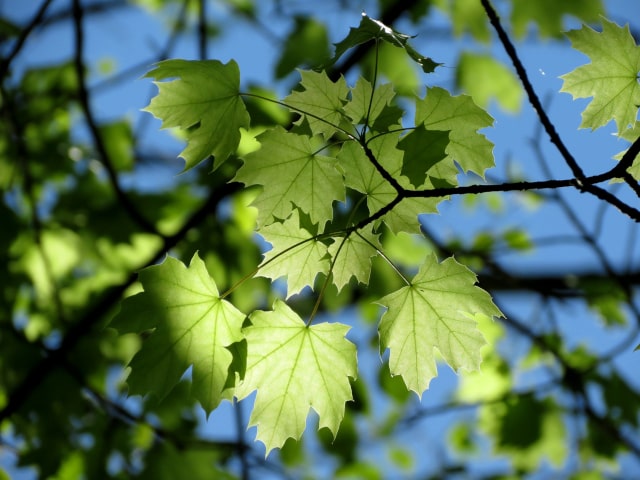
There are many people who want to grow trees in their garden or a backyard. This is generally a great idea, particularly for those who have large gardens. However, not all trees are good candidates for gardens and backyards. There are numerous problems that can make a tree a bad choice for a garden. Some trees have vigorous growth, others are fragile while some attract way too many insects. In order to protect your garden it is important to know which of the popular trees are a bad choice for your garden.
Here are some common problems you may encounter with some trees:
Vigorous Growth
Some trees are strong, beautiful and offer a great shade but they are not the best choice for your garden due to their vigorous growth. Trees that grow too quickly and can spread a lot can take over your garden in no time, possibly preventing other plants from growing. This is why you should think twice before planting these trees in your garden.
Trees known for their vigorous growth and invasiveness include:
Eucalyptus
Eucalyptus is a popular plant because its extract is used in many different ointments and products. This tree has a strong yet appealing smell that many people like. This may make you want to grow Eucalyptus in your garden.
However, there is one big problem with Eucalyptus: it is known for its vigorous growth. In fact, this is one of the fastest growing plants in the world. Think about this before you decide to grow Eucalyptus in your garden.
Another problem with Eucalyptus is that it requires a lot of maintenance so you need to invest a lot of time and effort into caring for this tree. Because of these reasons, Eucalyptus is definitely not the best tree to grow in your garden.
Norway Maple
Norway Maple is a beautiful tree that can adapt easily to many different conditions. It is not indigenous to the United States but it can easily be grown in many part of the U.S. Norway Maple is known for its great shade so many people may want to grow it in their gardens.
However, Norway Maple has one big fault: it is known for destroying any other plant that grows around it. Norway maple can easily destroy other plants, shrubs even smaller trees. Its dense shade prevents other plants from getting adequate amounts of sunlight. Also, Norway maple has fibrous roots that take all of the nutrients from the soil so other plants cannot reach those nutrients.
Chinese Tallow
Chinese Tallow is a beautiful tree that can add a lot of beauty to your garden. Also known as the Popcorn tree due to the appearance of its flowers, this tree can provide a lot of shade. It can provide a magnificent shade and is known for bright colors in the autumn.
However, Chinese Tallow is not the best tree to grow in your garden due to its invasiveness. It can easily reach up to 40 feet in height and 30 feet in width. It has massive roots and is known for its vigorous growth. It may not pose a problem right from the start but it may cause a lot of trouble in the long run. This is why you should think twice whether to grow this tree in your garden or not.
Ginkgo Biloba
Ginko Biloba has been used for centuries in the traditional Chinese medicine. This beautiful tree is famous for its numerous therapeutic properties. On the other hand, this may not be the best tree to grow in your garden.
One problem with Ginko Biloba trees is that they can grow very high - sometimes to 80 feet in height. It means that most backyards are simply not the best places for a Gink Biloba.
Another issues with this tree is its fruit. The fruit tends to fall on the ground and cause a lot of mess on the driveways and patios. Keep in mind that this issue only happened with the female Ginko Biloba tree so if you really want to grow this tree in your garden, make sure to pick the male tree.
Russian Olive
Russian Olive is a beautiful tree with a very distinctive look. You may want to grow it in your garden because of its attractive appearance.
However, keep in mind that Russian Olive is one of the most invasive trees you can grow. It can easily crowd out the surrounding plants. Russian Olive will steal all water and nutrients from any plants that are grown in its vicinity. This is why this tree is not a good choice for a garden.
Insect Problems
Some trees are beautiful and will not overcrowd your garden. One may think that these trees are perfect candidates for your backyard, but think twice. Before you choose a tree, make sure that it's not known for attracting insects.
Certain trees attract numerous insects, which can be a huge problem. These trees may be beautiful but it is best to avoid them in your garden. Here are some of the most popular trees known for insect problems:
Mulberry Tree
Mulberry tree is a strong, sturdy plant that many people want in their garden. It has a strong root system that makes this tree reliable. These things may make the Mulberry tree an ideal garden plant but there is a problem. These trees are notorious for producing huge amounts of pollen. This pollen attracts insects in large numbers.
The most common pest that this tree has is silkworm. It is not uncommon to get silkworm infestation simply because you have a Mulberry tree in your garden. Insects can often get in your home so they are difficult to get rid of.
The silkworm and other insect problem is a big reason not to plant a Mulberry tree in your garden. At the same time, keep in mind that this tree is very beautiful and reliable. It can provide a great shade during hot summer months so maybe you can overlook the insect problem.
Linden
Linden, also known as Tillia, is a deciduous tree that can look very beautiful in any garden. It can reach a height of about 60 feet so it can dominate any backyard.
The problem with Linden is that it attracts insects, particularly aphids. This can lead to pest infestation that is not easy to get rid of. Another problem with Linden is that it has a lot of sticky secreted sap that can easily get all over driveway.
Lombardy Poplar
This is a very popular tree because of its characteristic appearance. Lombardy Poplar has a columnar shape and it grows quickly without overcrowding your garden. However, it doesn't mean that this tree is a good one to plant in your backyard.
One major problem with the Lombardy Poplar is that it attracts many different insects. The insects are not just a nuisance but attract these trees in large numbers. Also, Lombardy Poplar is susceptible to numerous diseases. Insects and diseases can quickly ruin the tree's root system and the rest of the tree. This is why Lombardy Poplar is not the best choice for your garden.
Ash
Ash is a popular tree known for its sturdiness. In fact, this is one of the most durable trees you can get so many people choose to grow it in their garden. However, ash is not the best candidate for a backyard because it attracts plenty of insects.
A specific insect called the Emerald ash borer is a huge problem. This insect attacks ash trees and ruins it. This is a small beetle but it can cause a lot of trouble. In order to prevent this issue it is best not to plant ash trees in your garden.
Honey Locust
Honey Locust is a deciduous tree that can grow around 70 feet in height. It also has a distinctive leaf structure that makes it very attractive. Some people may think that this tree is a good choice for large gardens but there is an insect problem.
This tree is often attacked by the honeylocust bugs. This typically happens late in spring. These insects can ruin a Honey Locust tree. This is why it's best not to grow this tree in your garden.
Photo credit: Katja Schulz
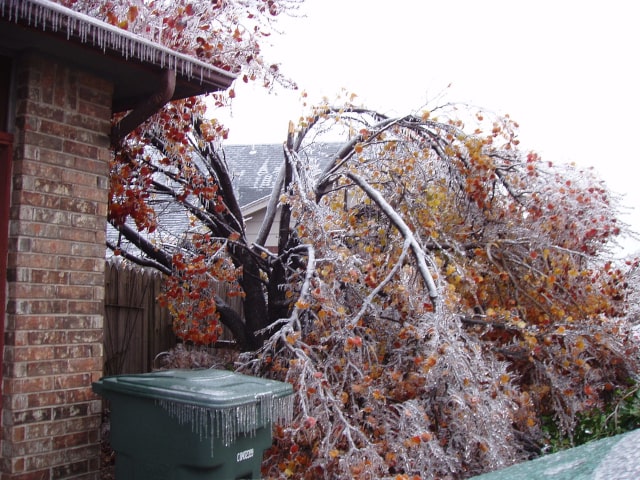
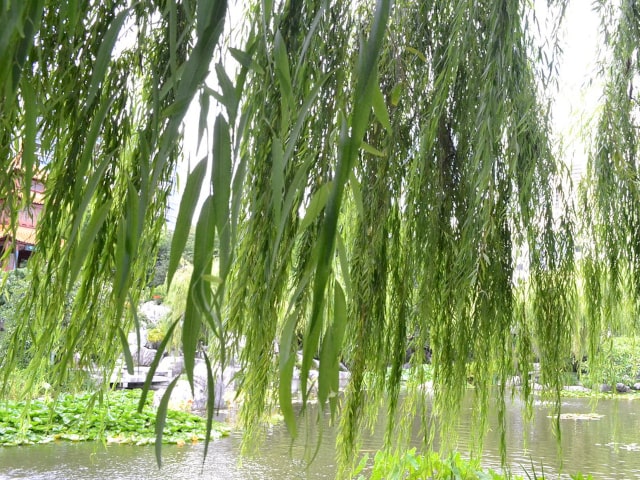
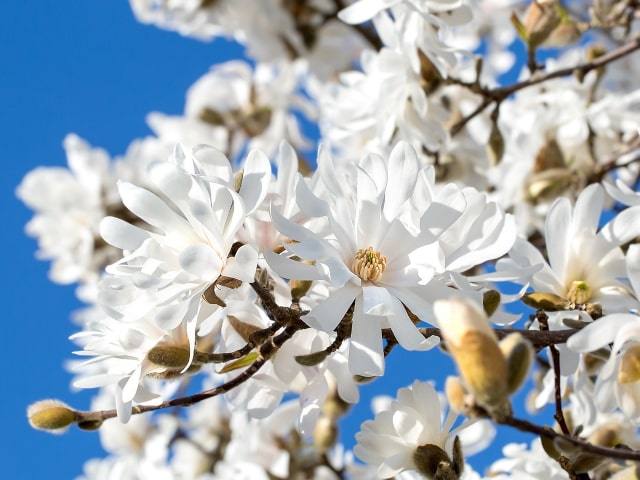
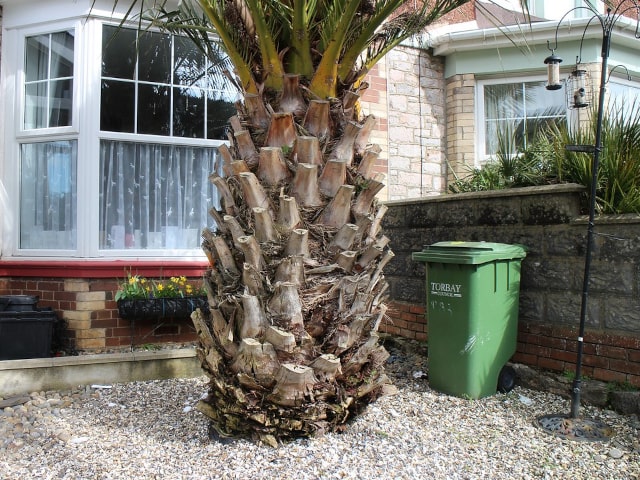
2 Comments
I live on cape cod where honey locusts are ubiquitous. I love them for the dappled high shade they give. My grandmother said that they "fix" nitrogen in the soil so the lawn under them stays green even on the dry sandy-clay-soil on cape cod, without adding polluting fertilizers. Their flowers smell amazingly sweet (right now-mid-June) and birds (especially catbirds) love them so much that they ignore cars on the road to eat them after they fall. They are prone to fall over in hurricanes so they should not be too close to the house. When they do, however, they make great firewood that doesn't need to be cured. It burns hot and clean in the stove and smells like incense.
Eucalypts are adapted to a fire regime - their leaves are full of natural oils that encourage burning and they recover quickly after fires. Seeds are usually dropped after fires and new seedlings quickly emerge. They are generally drought resistant and there are some small species with attractive flowers that are quite suitable for gardens including Pink Flowering Yellow Gum (E leucoxylon var. rosea), Gunguru (E. caesia), Coral Gum (E torquata). Well drained soils are preferred for these species.